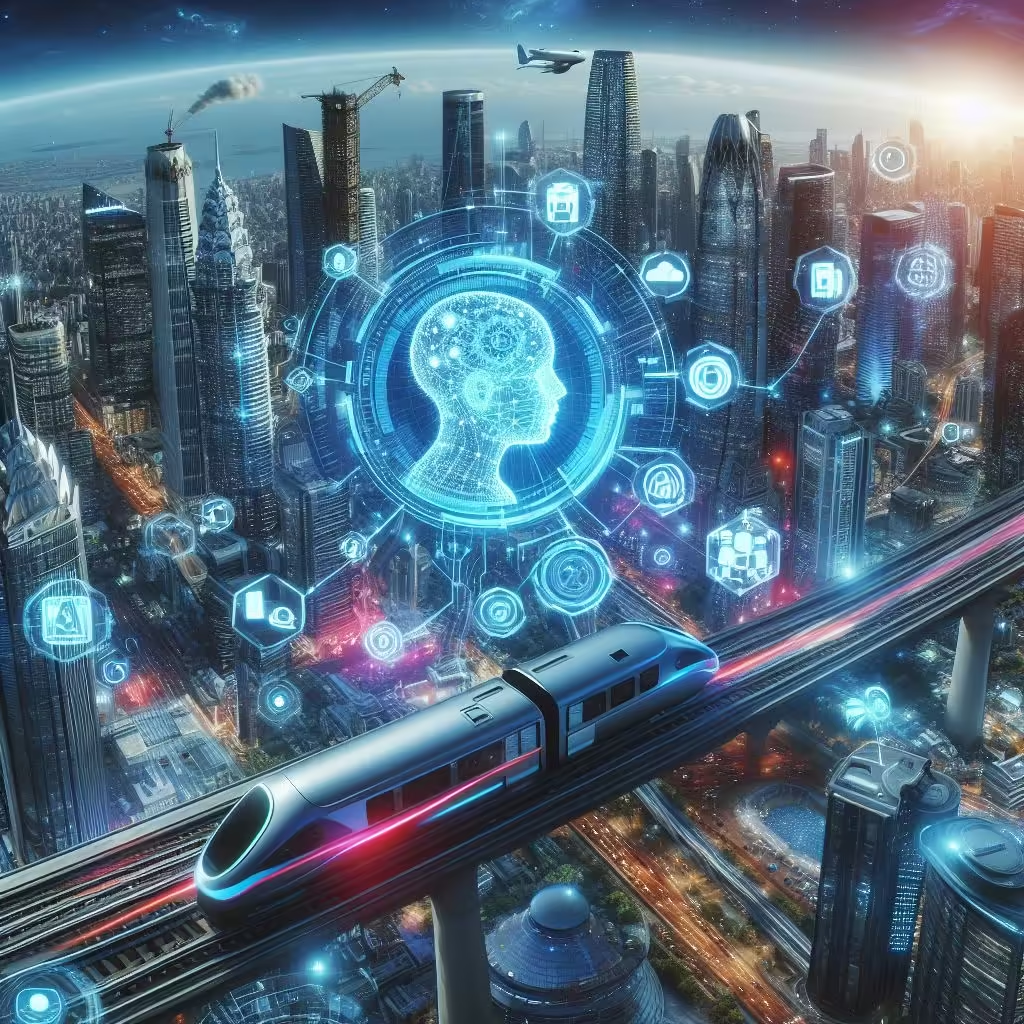Artificial Intelligence (AI) has become a prominent topic of discussion in recent years, with its potential to revolutionize various industries and reshape the future workforce. As AI technology continues to advance, it is crucial to understand the job trends and transformations that it brings.
The Rise of AI in the Workplace
AI has already made its way into many aspects of our lives, from voice assistants like Siri and Alexa to recommendation algorithms used by online retailers. In the workplace, AI is being adopted for tasks that were previously performed by humans, such as data analysis, customer service, and even creative tasks like content creation. AI and the Future Workforce: Job Trends and Transformations
One of the key reasons for the rise of AI in the workplace is its ability to automate repetitive and mundane tasks. This allows employees to focus on more complex and strategic work, ultimately increasing productivity and efficiency. However, this also means that certain jobs may become obsolete or undergo significant transformations.
Job Trends in the Age of AI
As AI continues to evolve, certain job trends are emerging. While some jobs may be at risk of automation, new roles are also being created to support and develop AI technology. Here are some of the key job trends in the age of AI:
1. Automation and Job Displacement
Automation has the potential to replace certain jobs that involve repetitive tasks or can be easily standardized. For example, manufacturing jobs have already seen significant shifts due to automation. However, it is important to note that automation also creates new job opportunities in areas such as robotics and AI development.
2. AI Specialists and Data Scientists
As AI technology becomes more prevalent, there is a growing demand for professionals who can develop and implement AI systems. AI specialists and data scientists are responsible for designing and training AI models, analyzing data, and creating algorithms. These roles require a strong understanding of machine learning, programming, and data analysis.
3. Human-Machine Collaboration
While AI technology can automate certain tasks, it is unlikely to completely replace human workers in many industries. Instead, there will be a shift towards human-machine collaboration, where AI systems complement human skills and capabilities. This collaboration can lead to increased productivity and innovation.
4. Ethical AI and Bias Mitigation
As AI becomes more integrated into our daily lives, there is a growing need for professionals who can ensure ethical and unbiased AI systems. Ethical AI specialists play a crucial role in developing AI systems that are fair, transparent, and accountable. They focus on mitigating biases and ensuring that AI technology is used responsibly. The Evolution of Artificial Intelligence: A Global Perspective
Preparing for the Future Workforce
As AI continues to transform the workforce, it is important for individuals and organizations to prepare for the future. Here are some steps that can be taken:
1. Embrace Lifelong Learning
With the rapid advancements in AI technology, it is essential to embrace lifelong learning. This involves continuously updating skills and knowledge to stay relevant in the changing job market. Upskilling and reskilling programs can help individuals adapt to new roles and responsibilities.
2. Develop Soft Skills
While AI can automate certain tasks, soft skills such as critical thinking, creativity, and emotional intelligence remain highly valuable. These skills are difficult to replicate with AI technology and are essential for roles that require human interaction and decision-making.
3. Foster a Culture of Innovation
Organizations should foster a culture of innovation and encourage employees to embrace new technologies. This can involve creating opportunities for experimentation, providing resources for learning, and promoting collaboration between humans and AI systems.
4. Address Ethical Considerations
As AI technology becomes more prevalent, it is crucial to address ethical considerations and ensure that AI systems are used responsibly. Organizations should establish guidelines and frameworks for ethical AI development and usage. This includes addressing issues such as bias, privacy, and transparency.
The Future of Work with AI
AI has the potential to transform the future workforce in significant ways. While certain jobs may be at risk of automation, new opportunities and roles are emerging. The key lies in understanding the job trends and transformations brought about by AI and preparing for the future through continuous learning, developing essential skills, fostering innovation, and addressing ethical considerations.
By embracing AI technology and adapting to the changing landscape, individuals and organizations can thrive in the future workforce.

